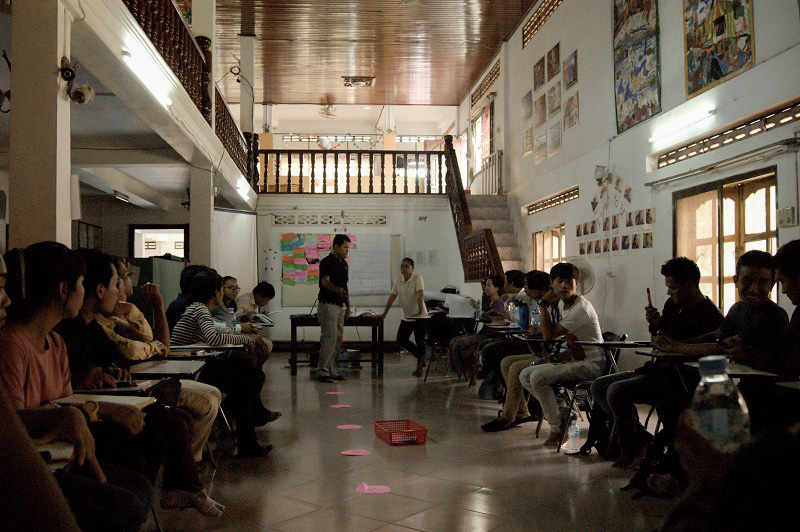The Taboo of Sexual Abuse
Sexual abuse of children is a complex problem to deal with because of the nature of the abuse and the taboos surrounding it. Identifying a child abuse victim requires sensitivity because outcomes of child abuse can have long-lasting effects on the child’s development and overall sense of well being as an adult.
While sexual abuse can occur in any cultural, ethnic, or income group, there is very little awareness about sexual abuse of boys. The cultural myths surrounding assault of boys makes it difficult to identify, address and provide long-term healing to the victim. According to UNDP, 16% of men have experienced sexual abuse in their lives.

On 24th August, Anjali House and First Step Cambodia organized a workshop for 30 development workers to raise awareness about sexual abuse on boys by dispelling myths surrounding it. Many of these ideas, beliefs and theories succeed not by virtue of the truth but by their popularity and this can be both harmful and unhelpful for a victim. Gender socialisation, cultural and social ideas may tell them to avoid showing their feelings because they will be teased or punished in other ways – but they are just as vulnerable and have the same emotions as girls.
Myths talked about during the workshop
Here are a few false beliefs and facts that formed the core of the workshop:
1. Boys’ abuse is not common – it does not happen at all.
Fact: It is far more common than we think. Most boys do not tell about their experiences. Estimates suggest that up to 30% of men and boys may have experienced some form of sexual abuse in their lives.
2. It is only or mostly foreigners that abuse boys
Fact: Cambodian boys are abused by foreign and Cambodian adults in variety of settings. In relation to girls and women the vast majority of sexual abuse and exploitation is committed by local, indigenous people. The same is true of those that abuse boys.
3. Strangers mostly abuse boys
Fact: Strangers sometimes abuse boys and girls but all children are most likely to be abused by someone they know. In most cases (between 80% and 90%) the child knows the person who abuses them.
4. If a boy has an erection and/or ejaculates – it proves he must have enjoyed it – so it cannot be called abuse
Facts: Not true – it is very common for boys to have an erection and ejaculate when they are abused – many abusers will make sure this happens and this confuses boys too. But this does not mean they enjoy it or are to blame.
5. Even if a boy is abused he can recover quickly because his reputation is not affected
Facts: People believe this because Cambodian culture often focuses on the reputation of the victim and family and loss of virginity where girls are concerned. Not true, sexual abuse causes a lot of short and long-term problems. Boys also feel great shame about what happened.
6. Boys do not have virginity, so there is no dishonor and loss of reputation – therefore it is not so serious
Facts: Because boys do not have a vagina, many people therefore make the mistake in thinking that it is not at all serious for boys. This is wrong because they may not have a vagina but sexual abuse also affects their honor and reputation.
7. If a boy does not ejaculate it is not abuse
Facts: Ejaculation is not necessary for something to be called abuse
Donate now and be a part of the change :
- Chuffed: https://bit.ly/3ucnBFq
- Khmer care: https://bit.ly/3T7F4cz
Read more articles:
